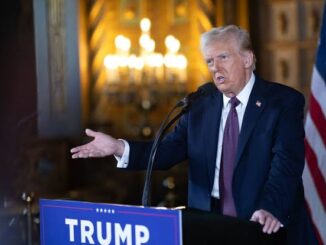
U.S. Companies Can Now Bribe Officials in Nigeria, Other Countries Following Controversial Policy Shift
Washington, D.C. – In a shocking turn of events, U.S. companies are now permitted to offer bribes to foreign officials in countries like Nigeria, following a major policy shift by the U.S. government. The move has sparked widespread criticism from global anti-corruption advocates, who argue that it undermines decades of progress in the fight against corruption.
The policy change reportedly involves modifications to the Foreign Corrupt Practices Act (FCPA)—a landmark U.S. law passed in 1977 that prohibits American companies from bribing foreign officials to gain business advantages. This law has historically been a key tool in global anti-corruption efforts, ensuring fair competition and deterring unethical business practices.
However, recent amendments appear to loosen these restrictions, allowing U.S. firms to engage in previously illegal practices under certain conditions. While details remain unclear, insiders suggest that the shift is being framed as a way to help American businesses remain competitive in international markets, particularly in countries where bribery is commonplace.
Backlash from Anti-Corruption Advocates
Transparency International, a global anti-corruption watchdog, has strongly condemned the policy shift. “This is a major step backward,” said a spokesperson for the organization. “The U.S. has long been a leader in enforcing anti-bribery laws, and this move sends a dangerous message to the world—that corruption is now acceptable if it benefits American business interests.”
Critics argue that the decision could have serious consequences, particularly in countries like Nigeria, where corruption has long been a challenge. Allowing U.S. corporations to engage in bribery could worsen existing issues, further entrenching corruption within government institutions and hindering economic development.
“Nigeria has made some progress in fighting corruption, but this move by the U.S. could undo years of effort,” said a Nigerian anti-corruption activist. “If American companies are openly allowed to bribe officials, it will encourage others to do the same, making it even harder to hold corrupt leaders accountable.”
Business Community’s Perspective
While human rights and transparency organizations decry the policy change, some business leaders have welcomed it, arguing that it levels the playing field.
“American companies have long been at a disadvantage when competing with firms from countries that don’t have strict anti-bribery laws,” said an anonymous U.S. executive. “In many countries, bribery is simply a part of doing business, and this new policy allows us to stay competitive.”
However, many economists warn that in the long run, this could backfire. They argue that widespread bribery leads to unstable business environments, unpredictable regulations, and increased risks for investors.
Global Implications
The policy change is expected to strain U.S. relations with countries that have strong anti-corruption laws, such as the U.K. and Canada. Additionally, it raises concerns about international organizations like the United Nations and the World Bank, which have long advocated for stricter anti-corruption measures.
“This could encourage a race to the bottom, where other nations also relax their anti-bribery laws,” warned a legal expert. “If that happens, global corruption could spiral out of control, and businesses might face even greater instability.”
As the world reacts to this controversial decision, it remains to be seen how it will affect diplomatic relations, business ethics, and the global fight against corruption. Many are now calling on U.S. lawmakers to reconsider the policy before irreversible damage is done.



Be the first to comment